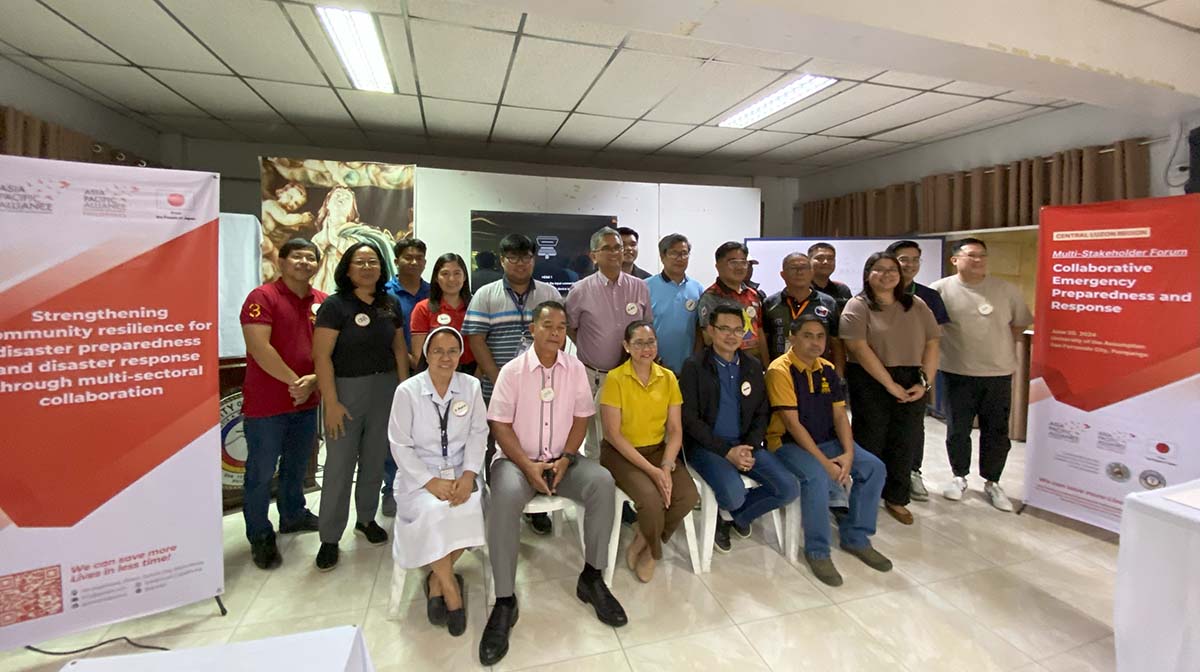
San Fernando City, Pampanga – In the face of escalating disasters exacerbated by the climate crisis, the need for more effective emergency response systems and mechanisms has never been more critical. On June 20, 2024, A-PAD Philippines led a second Multi-stakeholder Forum at the University of the Assumption, aiming to strengthen collaboration and understanding among key DRRM stakeholders, particularly response agencies, to address these growing challenges.
This event serves as a continuation of the discussion held last February 22 that brought together a diverse group of stakeholders from Central Luzon to share valuable insights, foster relationships, and promote collaboration in disaster risk reduction efforts.
The forum, held in partnership with the Local Government Unit of San Fernando City and the University of the Assumption, and supported by the people of Japan through the Ministry of Foreign Affairs, convened previous participants and new partners under the theme “Collaborative Emergency Preparedness and Response.” The goal was to build on the foundation laid earlier this year by further exploring and enhancing strategies for effective emergency preparedness and response, including coordination protocols, humanitarian principles, and the critical roles that various sectors play in ensuring resilience against disasters.
Ms. Athea M. Penaloza, Executive Director of A-PAD Philippines, underscored the significance of this multi-sectoral collaboration. She stated, “Effective collaboration among stakeholders is essential for robust disaster preparedness. By pooling resources and coordinating complementary activities, we amplify our ability to respond swiftly and effectively in times of crisis.”
Representatives from the San Fernando City CDRRMO and the Office of Civil Defense Region 3 participated in the forum as resource persons. The CDRRMO representative presented on Coordination Protocol for Disaster Response, covering the Incident Command System (ICS), Cluster Approach, and Emergency Operations Center (EOC). Meanwhile, the Office of Civil Defense representative provided an overview of Humanitarian Principles and Standards. These sessions provided guidance and a platform for participants to plan emergency preparedness and response mechanisms.
Building on the success of the forums conducted on February 22 and June 20, A-PAD Philippines continues to work towards stronger interagency coordination and collaboration in building resilient communities throughout the Central Luzon Region and the Philippines.
“As we navigate the multifaceted challenges posed by climate change and evolving risk landscapes, creating a culture of preparedness and strengthening multi-stakeholder collaboration is essential,” Ms. Penaloza concluded.

